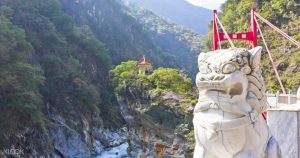
Before reading these chapters and viewing both the original Taroko Gorge and several other versions, I had heard of blackout poetry and collage, but not combinatory poetry (either physical or digital). Similarly, I had learned about Dada (visual) art in an Art History class, but not much about their textual or audio art, or how that influenced forms of e-literature. With that, I have found a new appreciation for the Dadaists in light of how they paved the way, in a manner of speaking, for Taroko Gorge and other forms of combinatory poetry. Taroko Gorge also seems to have derived at least partially from the surrealists (I believe that this is mentioned in the book as well) as the poems (or poem, if each version is seen as simply one small part of a whole, rather than several distinct versions separate from the source) seem to speak to a subconscious chaos that combines aspects of both Dadaism and surrealism.
I haven’t done much coding (I learned about HTML and CSS in Brenda Grell’s 201 class, but that’s the extent of my experience) but looking at the source codes were very interesting. I would definitely like to learn more about computer coding in order to better understand the digital aspect and the underlying mechanics of e-literature.
Of the other combinatory poems drawn from Taroko Gorge’s code, I especially liked Tournedo Gorge, which combined computer and cooking metaphors in a surprising yet effective way. I hadn’t thought about it before, but the poem showed how both cooking and computer art (or even computer science) are composed of many smaller aspects all lending to a whole, as well as both drawing from the past to build towards the future.
Another that stood out was ‘Wandering through Taroko Gorge’ by James Burling; this poem seemed to draw not only on variables within the code, but with words supplied by each reader. Unfortunately, the website was broken (I believe that the code wasn’t updated enough for Chrome, but again, I don’t know quite enough about code to tell exactly what as going wrong). However, even the broken quality of the poem spoke to the fragility of e-literature, illuminating just how fleeting, and therefore precious, it can be.
Overall, I liked the concept of both Taroko Gorge and combinatory poetry. I believe it builds on both poetic & literary foundations while forging new pathways for artists, writers, and coders alike.